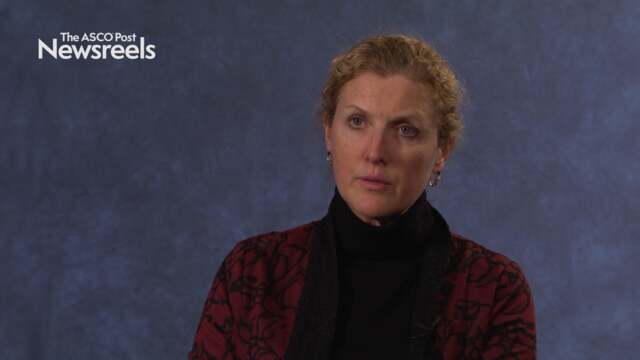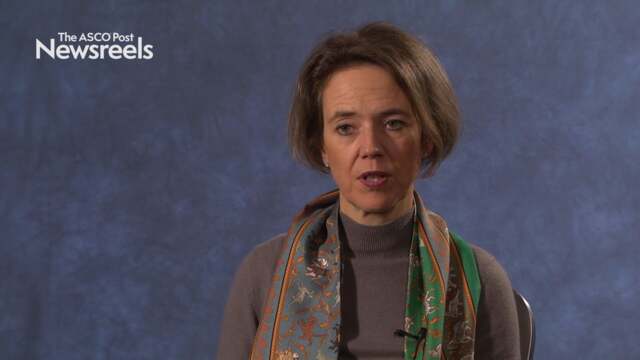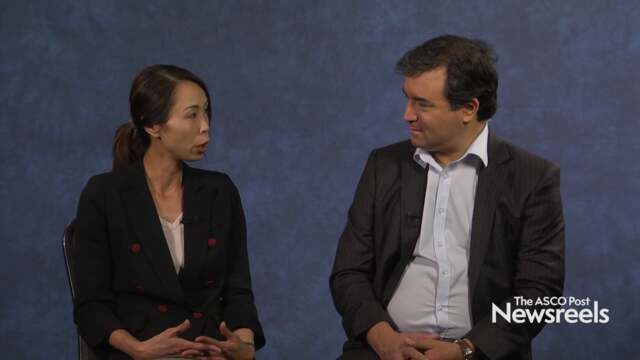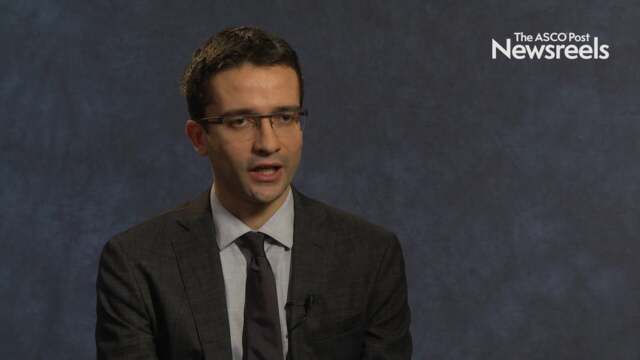Eric S. Winer, MD, on Metastatic Breast Cancer: Debate on a Research Tool
2017 San Antonio Breast Cancer Symposium
Eric S. Winer, MD, of the Dana-Farber Cancer Institute, addresses the much-discussed controversy over whether all women diagnosed with metastatic breast cancer should undergo next-generation sequencing.
Lisa A. Carey, MD, of the University of North Carolina, discusses the long-term follow-up of CALGB 40502/NCCTG N063H, a phase III study of weekly paclitaxel compared with weekly nanoparticle albumin bound nab-paclitaxel or ixabepilone with or without bevacizumab as first-line therapy for locally recurrent or metastatic breast cancer (Abstract GS3-06).
Lynn J. Howie, MD, of the U. S. Food & Drug Administration, discusses a pooled analysis of outcomes of older women with hormone receptor–positive metastatic breast cancer treated with a CDK4/6 inhibitor as initial endocrine-based therapy (Abstract GS5-06).
Sibylle Loibl, MD, PhD, of the German Breast Group, discusses a study evaluating palbociclib plus endocrine treatment vs a chemotherapy-based treatment strategy in patients with hormone receptor–positive, HER2-negative metastatic breast cancer (Abstract OT3-05-04).
Sherene Loi, MD, PhD, and Roberto Salgado, MD, PhD, both of the Peter MacCallum Cancer Centre, discuss study findings on pembrolizumab and trastuzumab in patients with trastuzumab-resistant disease (Abstract GS2-06).
Matteo Lambertini, MD, of the Institut Jules Bordet, discusses the results of five clinical trials investigating temporary ovarian suppression with gonadotropin-releasing hormone analogs during chemotherapy as a strategy to preserve ovarian function and fertility in premenopausal early breast cancer patients (Abstract GS4-01).





